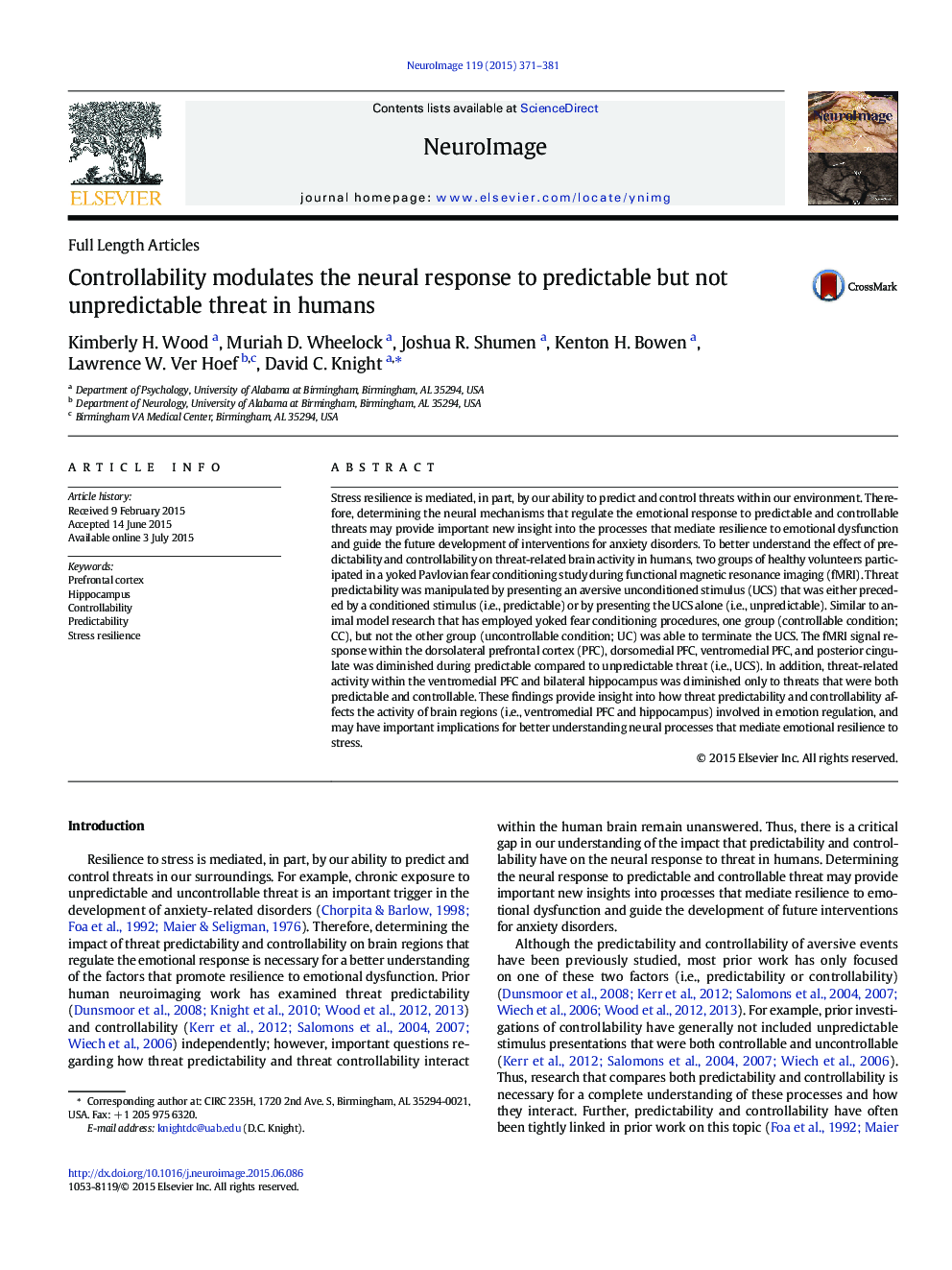| کد مقاله | کد نشریه | سال انتشار | مقاله انگلیسی | نسخه تمام متن |
|---|---|---|---|---|
| 6024859 | 1580888 | 2015 | 11 صفحه PDF | دانلود رایگان |
عنوان انگلیسی مقاله ISI
Controllability modulates the neural response to predictable but not unpredictable threat in humans
ترجمه فارسی عنوان
کنترل پذیری پاسخ عصبی را به تهدید قابل پیش بینی اما غیر قابل پیش بینی در انسان متصل می کند
دانلود مقاله + سفارش ترجمه
دانلود مقاله ISI انگلیسی
رایگان برای ایرانیان
کلمات کلیدی
موضوعات مرتبط
علوم زیستی و بیوفناوری
علم عصب شناسی
علوم اعصاب شناختی
چکیده انگلیسی
Stress resilience is mediated, in part, by our ability to predict and control threats within our environment. Therefore, determining the neural mechanisms that regulate the emotional response to predictable and controllable threats may provide important new insight into the processes that mediate resilience to emotional dysfunction and guide the future development of interventions for anxiety disorders. To better understand the effect of predictability and controllability on threat-related brain activity in humans, two groups of healthy volunteers participated in a yoked Pavlovian fear conditioning study during functional magnetic resonance imaging (fMRI). Threat predictability was manipulated by presenting an aversive unconditioned stimulus (UCS) that was either preceded by a conditioned stimulus (i.e., predictable) or by presenting the UCS alone (i.e., unpredictable). Similar to animal model research that has employed yoked fear conditioning procedures, one group (controllable condition; CC), but not the other group (uncontrollable condition; UC) was able to terminate the UCS. The fMRI signal response within the dorsolateral prefrontal cortex (PFC), dorsomedial PFC, ventromedial PFC, and posterior cingulate was diminished during predictable compared to unpredictable threat (i.e., UCS). In addition, threat-related activity within the ventromedial PFC and bilateral hippocampus was diminished only to threats that were both predictable and controllable. These findings provide insight into how threat predictability and controllability affects the activity of brain regions (i.e., ventromedial PFC and hippocampus) involved in emotion regulation, and may have important implications for better understanding neural processes that mediate emotional resilience to stress.
ناشر
Database: Elsevier - ScienceDirect (ساینس دایرکت)
Journal: NeuroImage - Volume 119, 1 October 2015, Pages 371-381
Journal: NeuroImage - Volume 119, 1 October 2015, Pages 371-381
نویسندگان
Kimberly H. Wood, Muriah D. Wheelock, Joshua R. Shumen, Kenton H. Bowen, Lawrence W. Ver Hoef, David C. Knight,
